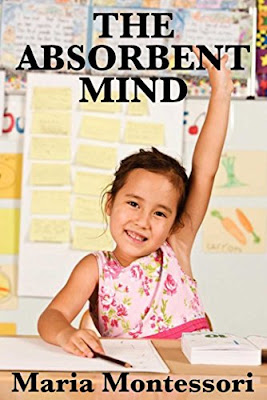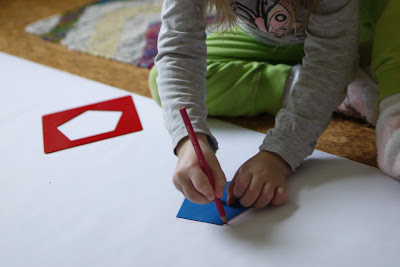Book review: The Absorbent Mind
Finally I read the last pages of Maria Montessori's own written book The Absorbent Mind. I don't always have time to read much, some periods more and some not at all. But so, it's time for a little review.
I bought the book long ago, don't even remember when, and at first I read the beginning of it, and I didn't like it, it wasn't what I was looking for at the moment, so there was a long pause. I picked it up some months ago, and at first I still didn't like it that much, but it grew more and more interesting. Until, when finishing the book, I am in total amazement and awe of the book and the Montessori philosophy.
I want to write a bit more about my thoughts and experience with Montessori, but that will be a separate post. Let this be only about the book.
It is a total must-read for everyone, who is getting interested in Montessori. This book is not a practical guide, it doesn't tell you, what to do or give you certain activities (some are mentioned), it is a very philosophical book. It opens your eyes and makes you look differently at children, childhood, society and points out, what is so wrong with the usual, mainstream attitudes, and same time the amazing potential, of what can become, if you start seeing things differently.
I have always felt strongly, that Montessori is so much more about the attitude, about philosophy and principles than about certain tools, materials or activities. All the nice work and Montessori-inspired play is quite useless, if you don't have the different vision and understanding. I mean, it's not bad, but it's not going to give any amazing results.
After reading this book I can say, my eyes have really opened now, I feel inspired. (Same time kind of frustrated and lost in how to really apply these principles in life, considering the actual situation, for example, in schools..) And I have now ordered 5 more books about Montessori. :D
And a quote, from the end of the book:
"The treasure then is to be found not merely near those who study poetry and religion, but within every human being. This miracle is sent to all; the representative of this tremendous force is to be found everywhere. Man makes a desert of stife and God continues to send this rain. So it is easy to understand that all the creations of adults, great achievements as they are, without love lead nowhere, to nothing. But if this love present in the child is taken among us, if its values and potentialities are realized and developed, our achievements, already great, will be tremendous. The adult and the child must come together; the adult must be humble and learn from the child to be great. It is curious that among all the miracles which humanity has performed, there is only one miracle that has not been taken into consideration: the miracle that God has sent from the beginning: the Child."





Comments
Post a Comment